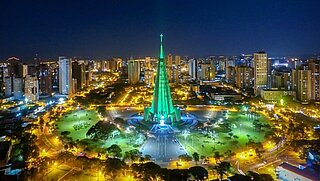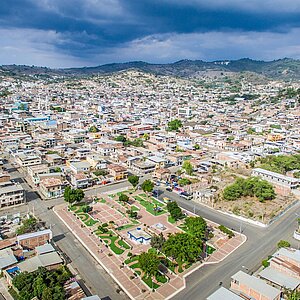FELICITY - Learning to scale up climate finance

How the insights from FELICITY – Cities Advisory Facility can be use to generate scaled impact by future initiatives on climate finance

Since 2017 FELICITY – Cities Advisory Facility focused on preparing bankable low-carbon infrastructure projects in cities. FELICITY’s work identified the lack of suitable investment opportunities, investor capabilities, and conditions for investment as barriers to scaling up climate finance. The XI World Urban Forum in Katowice, Poland, is a good opportunity to explore the insights of the program and their potential to support the design and structure of future initiatives on climate finance.
FELICITY is a global initiative from the International Climate Initiative (IKI) for urban climate action on behalf of the German government. The initiative follows a ‘Team Europe’ approach, with the Deutsche Gesellschaft für Internationale Zusammenarbeit (GIZ) and the European Investment Bank (EIB) cooperating to support urban investment projects and climate action. In response to the aforementioned challenges in linking climate action to finance, FELICITY supports the preparation and financial uptake of bankable low-carbon infrastructure projects, strengthens the expertise and institutional capacities of project partners at subnational and national level, analyses and partially intervenes on relevant framework conditions in target countries. In all this, it takes the perspective of international financiers into account.
FELICITY’s scope was characterized by heterogeneous partner countries (Brazil, China, Ecuador, Indonesia and Mexico) and ten pilot projects covering a wide range of sectors namely: renewable energy and energy efficiency in buildings, public transport, waste and wastewater. Investment volumes extended from EUR 3 to 90 million E involving different financial instruments. These includeintermediated loan, municipal funding, national grant or loan, private sector models. While this heterogeneity generated learning, the potential for synergies and scaling was small.
Application of recommendations and lessons learnt

For future interventions that focus on scaling their impact, it is recommended to generate by clustering project pipelines and preparation, i.e. along sectors or territories (large utilities, metropolitan areas etc). In FELICITY II, focusing on Central Asia and Eastern Europe, this cluster approach will be used focusing on four countries from the same region and two sectors.
Technical assistance interventions on project preparation should be linked to a suitable range of finance and blending products to make for an attractive package to developing and emerging markets. In the wake of the COVID19 pandemic, cities explored private sector models to avoid further debt. Rendering urban climate action projects attractive for the private sector requires in-depth knowledge of suitable contractual models by municipal staff as well as the access to public de-risking mechanisms.
With regards to the partner structure, technical assistance interventions should build onto a set of actors for systemic change and scale. FELICITY identified financial intermediaries at the national and regional level as multipliers and change agents scaling the impact. Collaboration with the local development banks Banobras (Mexico), BDE (Ecuador) and BRDE/BDMG (Brazil) have proven to be an advantage. Through targeted engagement, Banobras and BDE as well as the Brazilian Association of Development Banks (ABDE) recognised the potential for green recovery in cities as a win-win situation: development financial institutions can offer sectoral green products, which in turn help cities meet their investment demands. This provides fertile ground for systemic change to flourish.
Regarding the conceptual approach it is advisable to complement local/national and international intervention level with activities at the regional level. This allows for joint strategic approaches and alliances for knowledge exchange and policy learning as well as for bundling financial products (access to finance). The regional Project Preparation Readiness Training Programme reaching over 2000 participants in Latin America showed the potential for regional synergies. Another spin-off inspired by FELICITY – in addition to FELICITY II - is the German Federal Ministry for Economic Cooperation and Development (BMZ) funded triangular cooperation between Germany, Mexico and Ecuador focusing on development banks’ contribution to a sustainable recovery.
The general advice for commissioning parties such as the IKI is to focus on impact as a guiding principle and flexibility on selection of intervention countries, sectors, project promoters and partners. By focussing on the short term implementation of projects, impact at scale will be easier to achieve – showcasing action is possible to ramp up NDC commitments by countries at a global scale.
Overall, FELICITY’s learnings provide valuable inputs to set-up scalable financing structures for public and private green infrastructure investments in developing and emerging economies. By directing its resources to impact, IKI can play a major role in accelerating action and investments. FELICITY demonstrates that it works!
Selected Impacts
The FELICITY pilots in Mexico, Brazil, Ecuador, and Indonesia have an estimated investment volume of 322 million Euro and an emission reduction potential of up to 1.98 million tCO2eq over 15 years. This equals annual GHG emissions of about 430,000 passenger cars.In 89 large-scale training events about 5,000 professionals have benefitted from FELICITY’s capacity development measures at the city, regional, and national level.
Based on an analysis of barriers for subnational climate finance, FELICITY developed recommendations on improving framework conditions adopted by the national level, ranging from targeted interventions to innovative solutions for a green recovery from the pandemic. At global level, FELICITY is actively involved in supporting international networks on climate finance, contributing its experiences and learnings on the ground in taking green urban infrastructure investment projects towards implementation.
The link has been copied to the clipboard
Contact
IKI Office
Zukunft – Umwelt – Gesellschaft (ZUG) gGmbH
Stresemannstraße 69-71
10963 Berlin









![[Translate to English:]](/legacy/_processed_/5/5/csm_Indien_EE_Solar_Frau_bfcf99c425.jpg)

![[Translate to English:] Die Petronas-Türme im Stadtbild Kuala Lumpurs; Foto: Unsplash/Ishan](/legacy/_processed_/f/8/csm_180215_ishan-seefromthesky_Header310_661e6fc5b9.jpg)
